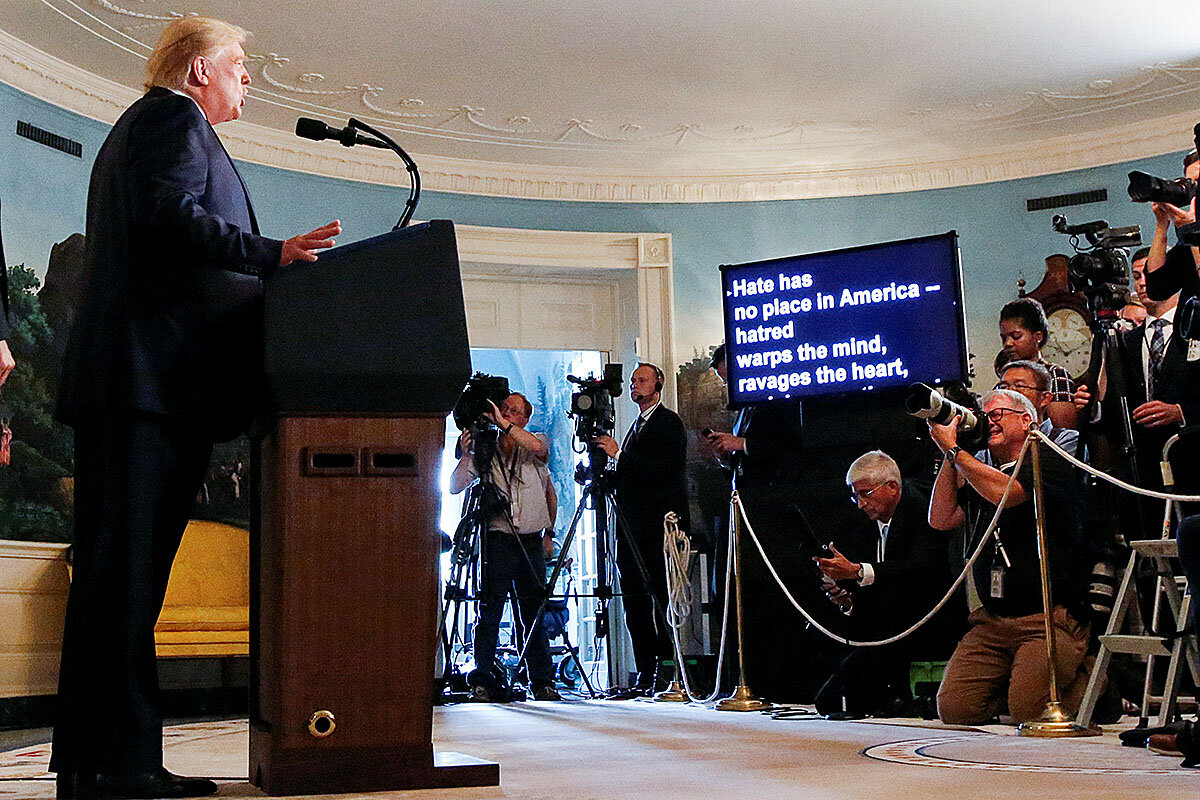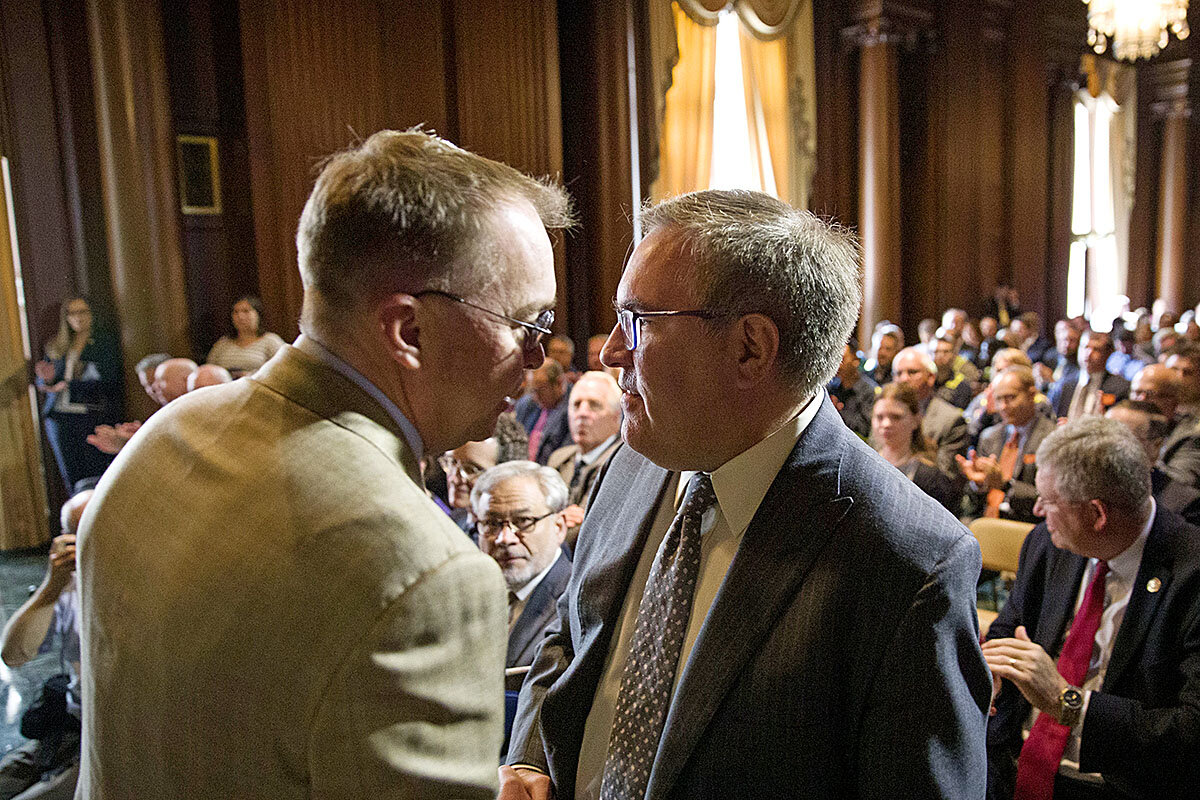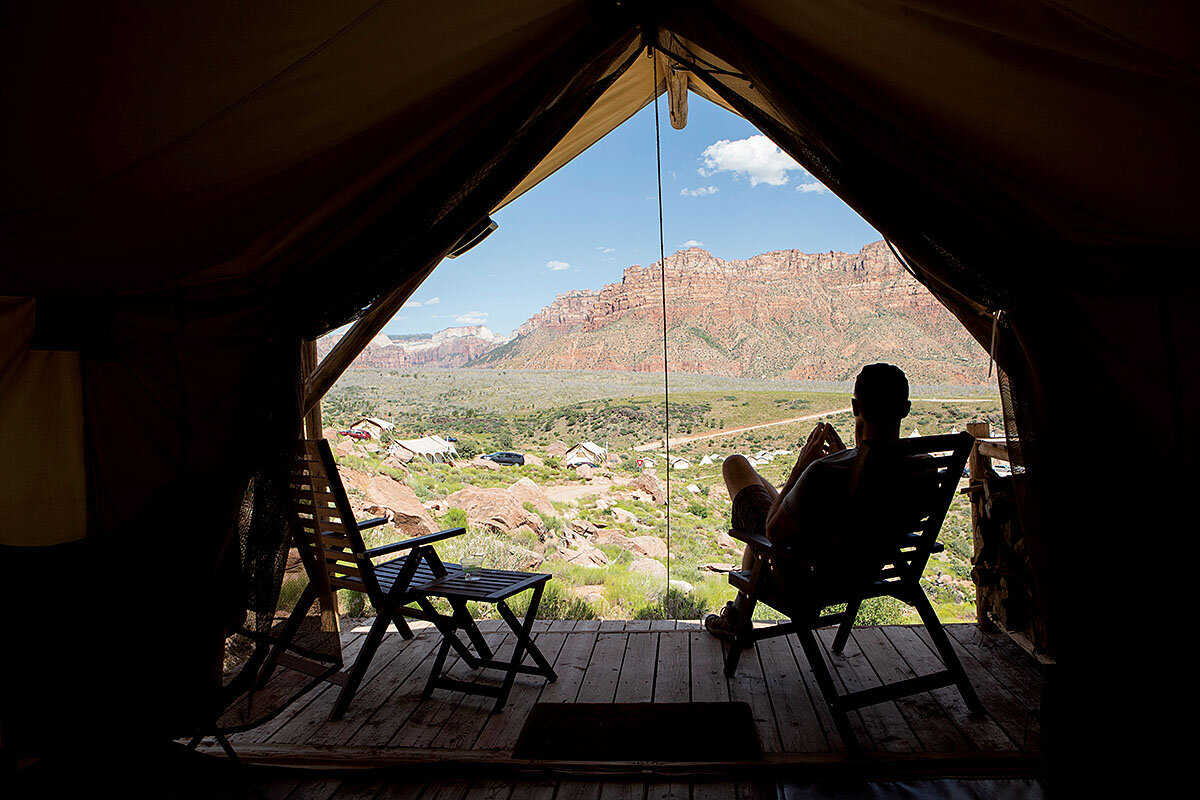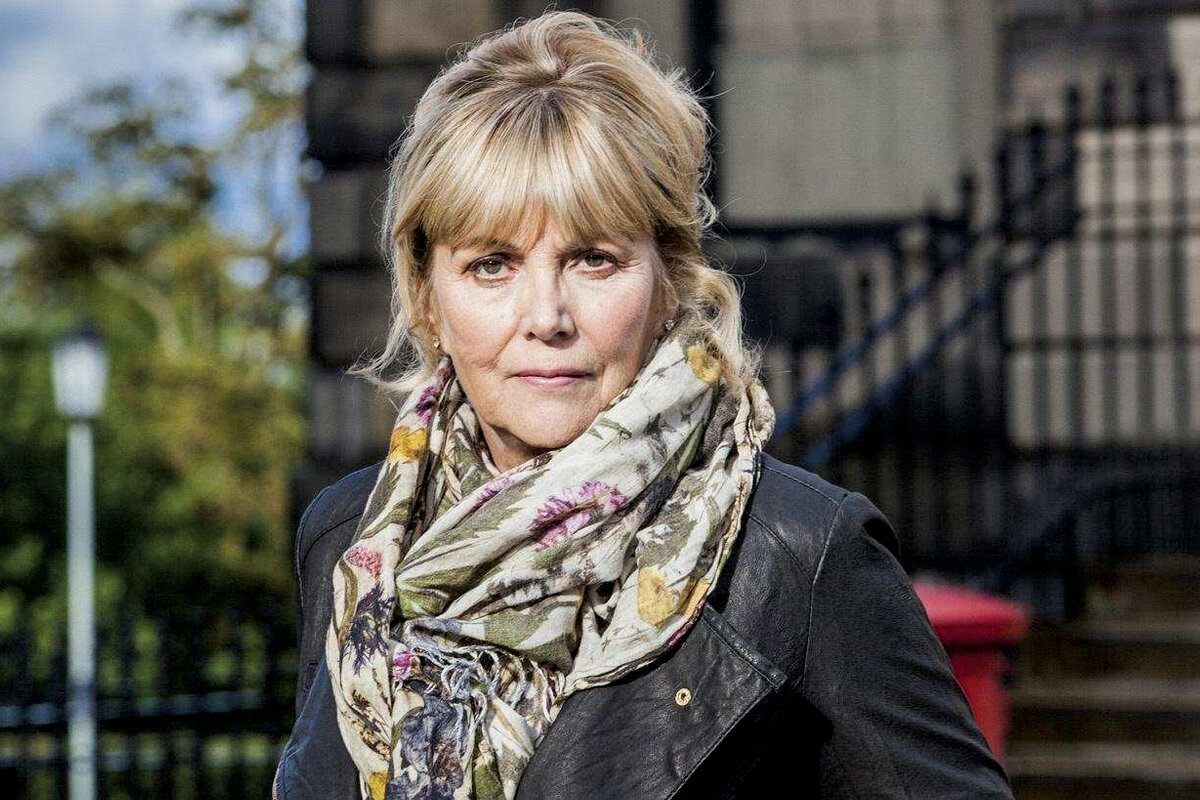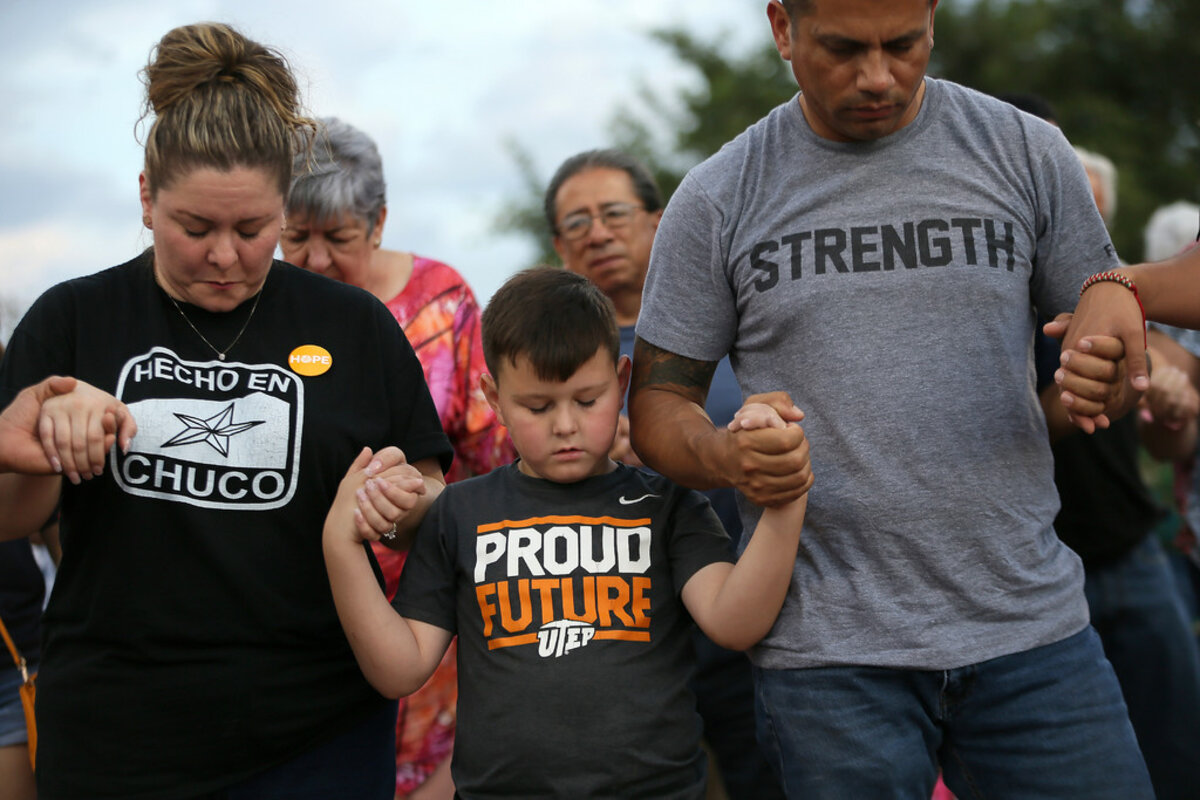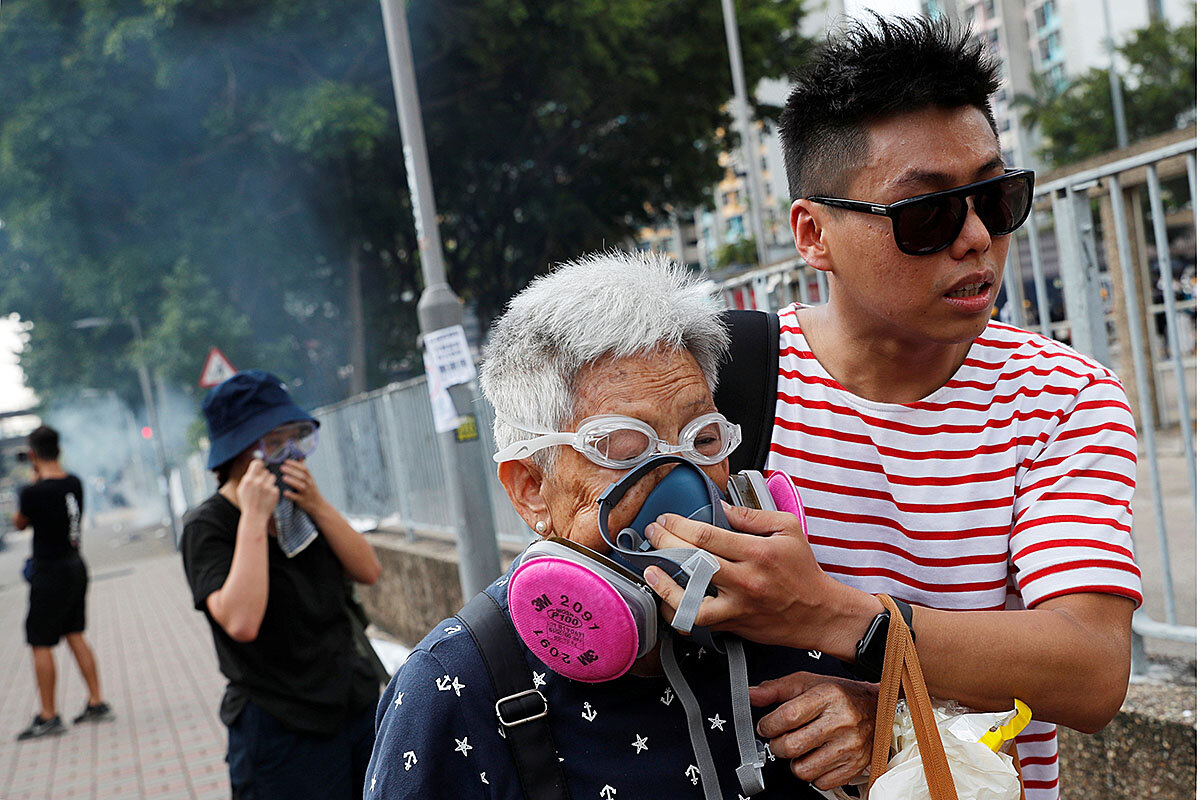Minority communities have long said killings by white nationalist extremists should be called terrorism. There’s now a willingness among law enforcement and some conservatives to do just that.
Monitor Daily Podcast
- Follow us:
- Apple Podcasts
- Spotify
- RSS Feed
- Download
 Amelia Newcomb
Amelia Newcomb
Welcome to the Monitor Daily. Today, we report on white supremacy terrorism, the Assad regime's abuse of Syrian refugees, climate change and socialism, cushy camping, and the work of novelist Kate Atkinson.
But first: As staff writer Henry Gass made his way to El Paso, Texas, last night, he received sympathetic nods when people heard he was a journalist. A woman boarding the same plane wished him good luck. The hotel attendant who checked Henry in at midnight shook his head. “I can’t believe it,” he said, adding that he finally had to change the TV channel in the deserted lobby so as not to hear any more news.
This morning, Henry went to the Cielo Vista Mall and watched as people placed flowers, candles, and crosses. Agonizing questions hung in the air: What is happening? Are our communities strong? What can we do?
These are among the toughest assignments for journalists. Henry also covered the 2017 shooting at a church in Sutherland Springs, Texas, which killed 26 people. “Part of me just really wants not to bother people,” he says. “But especially now, I want to let the rest of the country know how people here are thinking and feeling.” Those people, whom he’ll be talking to in-depth over the next couple of days, include recent and generations-old immigrants, such as the woman handing out water bottles near the mall. She tells Henry her grandmother immigrated from Mexico, “doing it right” and building a good life in a nearby neighborhood.
For now, he takes heart in the signs he’s seeing: “El Paso Strong.” “Forever 915” (the city’s area code). And the small piece of cardboard on which the flags of Mexico and Texas sit side by side.




